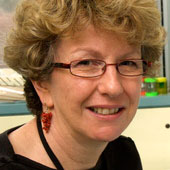Is the immune system destroyed because it's too clean?
It is thought that excessive hygiene or a clean lifestyle is thought to be related to the alarming increase in autoimmune and allergic diseases in Western countries , according to professor Barbara Fazekas de. St Groth, works at Centenary Research Institute, Sydney, Australia. But the answer to this dilemma may lie in our gut.
In an article published in The Conversation , Professor Fazekas de St Groth, writes about linking the evidence of " hygiene hypothesis ": A theory that shows the link between rising living standards and the Immune-related diseases such as allergies, type 1 diabetes and multiple sclerosis.

Professor Barbara Fazekas de St Groth found evidence supporting " Hypothesis "
" We do not know exactly why these diseases continue to increase despite improved living standards. This study shows an increased cause of immune-related diseases, but we have not yet discovered. What specific microorganisms play a key role in causing these diseases ".
" One way to narrow down the huge field of pathogenic factors, may be the approach from the endpoint. By understanding more about the immune system and how environmental, defense factors are Birth can change the function of the body's immune system . "
Professor Fazekas de St Groth claims that the discovery of a small but absolutely essential group of T cells, in the immune system is very important: Inhibited T-cells are also known as regulatory T cells (or Tregs), which control unwanted immune reactions, such as allergies and autoimmune diseases.
" Regulated T cells (Tregs) are distributed throughout the body, especially at sites that may encounter pathogenic bacteria. The most important place is the intestinal tract, which is the site of more than 90% of the The body's immune cells . "
" This constraint fits perfectly with the hygienic hypothesis because it explains how an infectious, first-time event in life (in the gut) can create a long-term effect on the system. immune . "
Professor Fazekas de St Groth stated: We have only just begun to understand gut bacteria, many intestinal bacteria cannot be cultured and they are only detected by DNA sequencing.
Currently, in an attempt to sequence the " human microbial community program (including: bacteria, microbes and fungi) ", like the human genome decoding program, will be fundamental , for further research to understand the mechanism of action of intestinal bacteria.
"The main concern now is whether new research results will arrive in time, to preserve the natural ecosystem of our intestines before it's too late ."
- Close-up of the human body's immune system is beautiful
- Foods that are harmful to the immune system
- After watching this video, you will see how amazing our immune system is
- The boy was born without an immune system
- The immune system becomes the same when we are together
- Genetic contact between the immune system and the nervous system
- New findings: Depression may be due to an overactive immune system
- Mechanism to fight infections of the immune system
- When the immune system is also aging
- Uncover the secret of the immune system of bacteria
- Decode the ability to recognize the 'super-accurate' old person of the immune system
- What happens when you live too clean
 Green tea cleans teeth better than mouthwash?
Green tea cleans teeth better than mouthwash? Death kiss: This is why you should not let anyone kiss your baby's lips
Death kiss: This is why you should not let anyone kiss your baby's lips What is salmonellosis?
What is salmonellosis? Caution should be exercised when using aloe vera through eating and drinking
Caution should be exercised when using aloe vera through eating and drinking